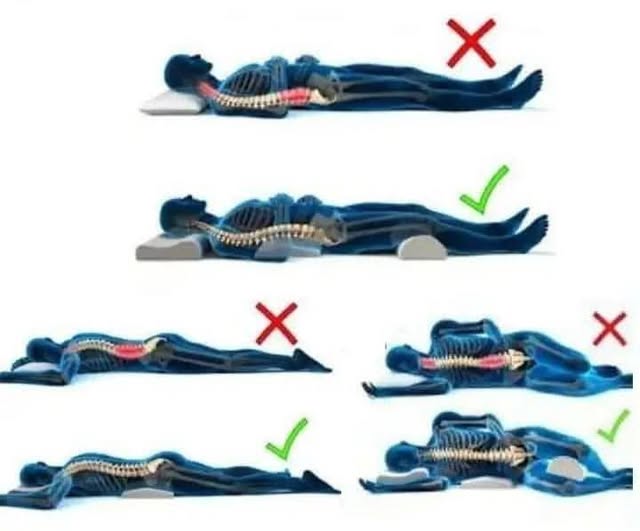When we talk about improving our health, most people immediately think of eating cleaner, working out regularly, or finding better ways to manage stress, but there’s one crucial factor that often gets left out of the conversation—your sleeping position. Believe it or not, how you sleep each night can quietly but significantly affect your overall well-being.

From spinal alignment to organ function, the posture you maintain while you’re asleep might just be the key piece missing from your health routine. Considering we spend about a third of our lives sleeping, your body spends thousands of hours each year in the same posture. That’s why even a minor issue with your sleep position can lead to a chain of problems over time—everything from back pain and poor sleep quality to long-term health issues. If you’ve ever woken up with a stiff neck, numb arms, or a sore lower back, chances are your sleep posture is to blame. And even if you’re clocking in eight hours of shut-eye, if you’re not sleeping in an optimal position, the quality of your sleep could still be compromised. Not all sleeping positions are created equal, and some of the most common ones are actually harmful in the long run. Take sleeping on your stomach, for example.
While it might feel cozy at first, it forces your neck to twist to the side, placing stress on your spine and causing misalignment. Over time, this can lead to chronic pain in your neck, back, and even trigger headaches. Another problematic position is sleeping with your arms overhead or tucked under a pillow. This posture can restrict blood circulation and compress nerves, leading to that all-too-familiar pins and needles sensation. Over time, this can cause shoulder strain and even lead to nerve damage if it becomes a nightly habit. Even the beloved fetal position, when curled too tightly, can do more harm than good.
While sleeping on your side does have health benefits, curling up like a ball can compress your lungs, restrict breathing, and place strain on your back and neck. A more relaxed side-sleeping posture, with a gentle bend in the knees, is a much better alternative. So, what’s the healthiest sleeping position? According to experts, sleeping on your left side is the winner. This position supports digestion, improves circulation, helps reduce acid reflux, promotes spinal alignment, and even encourages better breathing—especially helpful for snorers or those with sleep apnea. While it may feel strange at first if you’re used to another position, a body pillow or wedge pillow can make the transition smoother. And you don’t need an expensive overhaul to improve your sleep posture.
A few small tweaks can work wonders. Start by choosing the right pillow. Your pillow should keep your head aligned with your spine—no tilting up or sinking down. Side sleepers benefit from firm, supportive pillows, while back sleepers should use a medium-loft pillow. If you absolutely must sleep on your stomach, go with the flattest pillow possible. Placing a pillow between your knees when sleeping on your side can also help keep your hips aligned and take pressure off your lower back. Don’t overlook your mattress, either—it should support the natural curve of your spine. A mattress that’s too soft will let your body sink out of alignment, while one that’s too firm can cause discomfort at pressure points. Memory foam or hybrid mattresses often strike the right balance. Training yourself to adopt a new sleep position might be challenging at first, but with consistency, it becomes second nature. You can use pillows to keep yourself from rolling over or start each night in your new preferred position. Pay attention to how you feel in the morning—if you’re waking up stiff or achy, that’s your body sending a message. And if you’ve made adjustments but are still experiencing discomfort, it could be time to consult with a professional like a chiropractor, physical therapist, or sleep specialist. They can help identify underlying issues like misalignment or sleep disorders that might be interfering with your rest. At the end of the day, sleep is just as essential to your health as what you eat or how you move. Your sleep posture isn’t just about comfort—it’s about supporting your body while it restores and recharges. So tonight, take a moment before bed to check your position, adjust your pillow, and align your body. With just a little effort, you can improve your sleep quality and wake up feeling refreshed, energized, and ready to take on the day.





